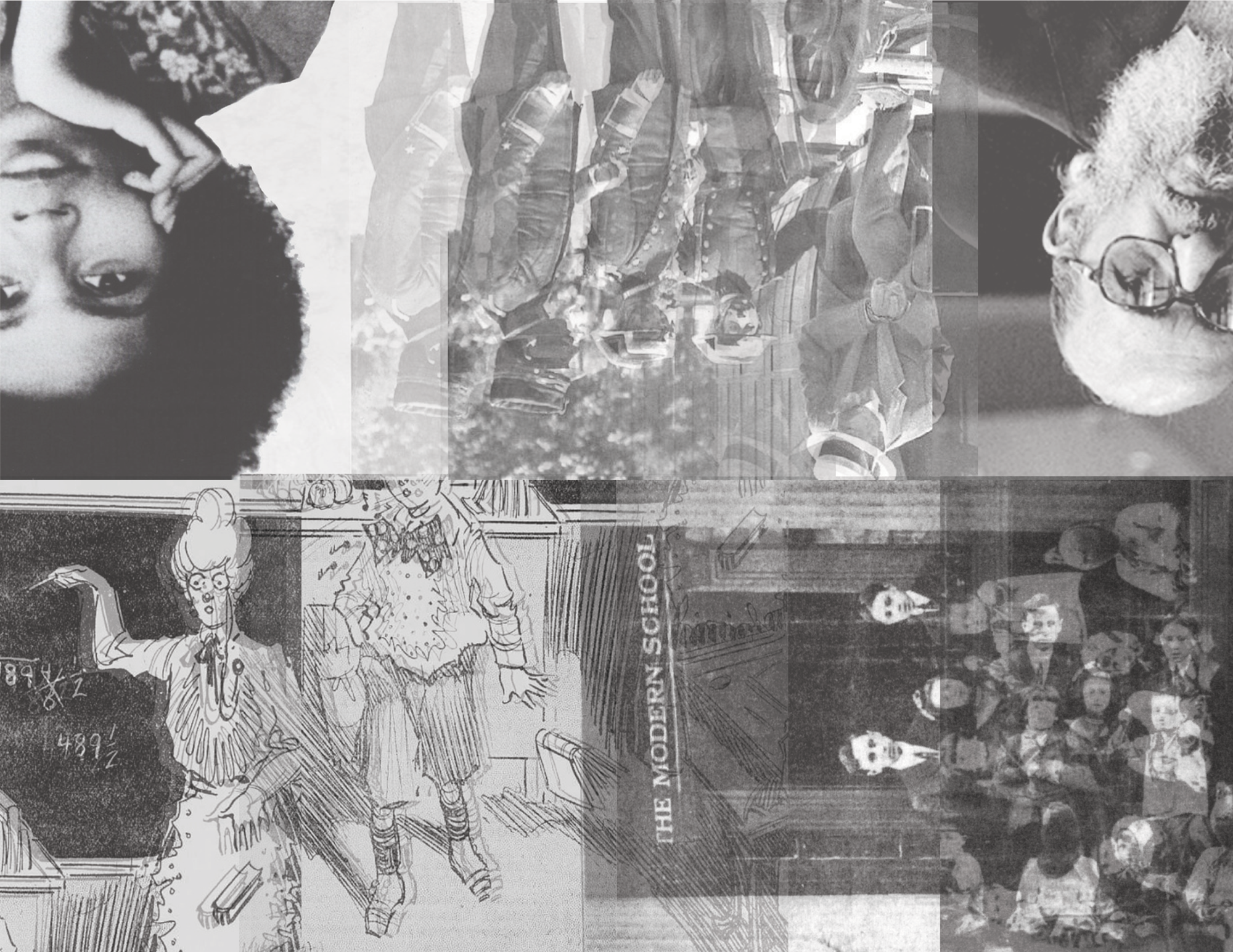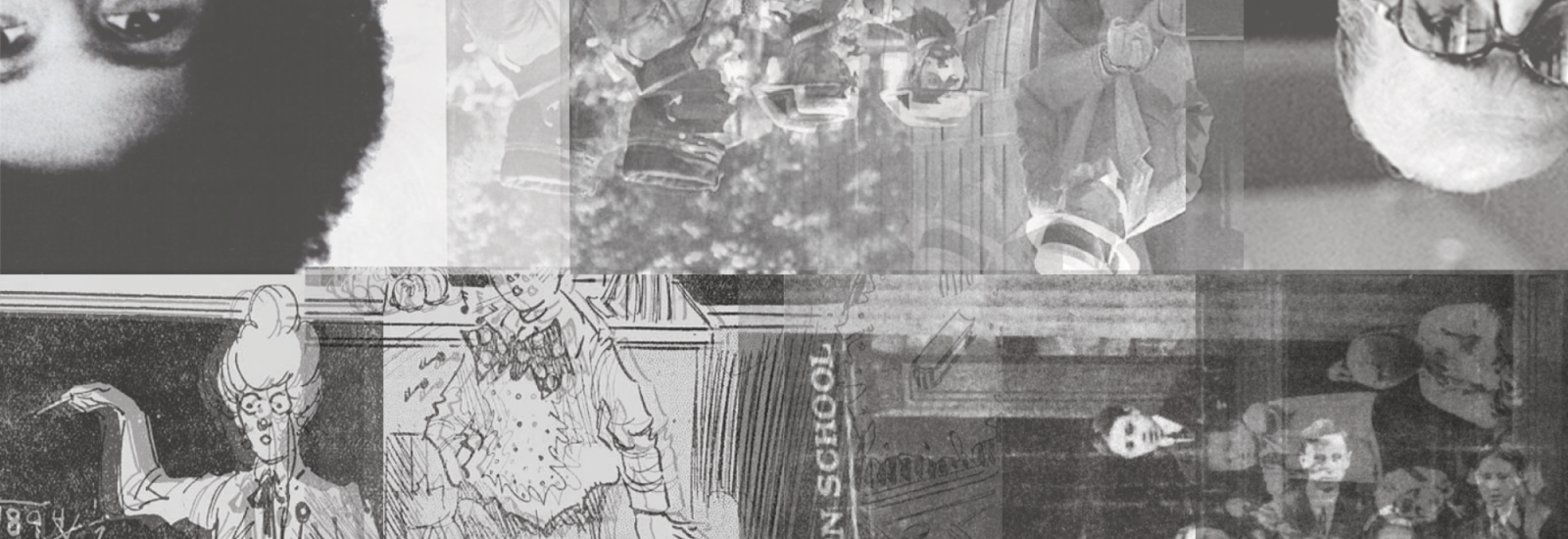
About the Author
CLOVIS WESTLUND (THEY/THEM)
Clovis Westlund is an undergraduate fellow in the Global Arts and Humanities’ 2023-2024 Society of Fellows cohort. They are an organizer, writer and researcher with the aim of combating the “invisibility” of marginalized, racialized and LGBTQ+ students in public schooling. A rising senior at Ohio State, Westlund is pursuing a BA in Public Management, Leadership and Policy, a BS in Sociology and minors in Education Policy and Educational Ethics.
Project Overview
Pulling from the disciplines of philosophy, history, sociology, and education studies, my research explores the origins and contemporary state of the unschooling movement in the United States.
Unschooling is broadly defined as alternative educational practices and structures critical of the bureaucracy, aims and student outcomes tied to traditional public education. Though most often traced to the Ivan Illich’s claims of compulsory public education as manipulative and a falsely public institution that undermines the freedom of students in the 1971 work, Deschooling Society, I am interested in unschooling related to self-defined learning and liberation. A richer history is revealed from this clarification, including the anarchist and libertarian ideologies of the early twentieth-century international Ferrer Modern School movement, the theorizing of bell hooks and others on abolitionist education, and the twenty-first century proliferation of religious homeschooling and bureaucratized self-defined education centers.
Foundationally, my research focuses on conceptions of education that are explicitly non-public because of some pedagogical or ideological aim. The contradictions within the historical practice of unschooling logic reveal greater lessons about the relationship between schooling, social institutions and cultural power — namely, the simultaneous place of education as a legitimate and illegitimate product of public debate. I approach this thinking with the Hegelian dialectic analytic framework — most demonstrated in the visual presentation of thesis-antithesis-synthesis in zine form — and Gert Biesta’s theory of the three functional forms of schooling: qualification, socialization, and subjectification. The inherent dissonance of education as a functional product of conflict is underlying in my thinking on unschooling.
"I make a definite distinction between that marginality which is imposed by oppressive structures and that marginality one chooses as site of resistance - as location of radical openness and possibility...We are transformed, individually, collectively, as we make radical creative space which affirms and sustains our subjectivity, which gives us a new location from which to articulate our sense of the world."
CHOOSING THE MARGIN AS A SPACE OF RADICAL OPENNESS
Zine Context
I selected a zine as a manner of visual presentation of my research for several reasons:
- Zines are historically and conceptually apt for the presentation of research on unschooling.
- Zines are specific, self-published and self-made magazines that have long been used as a form of populist knowledge production founded in marginalized and racialized communities, offering an outlet to build and distribute knowledge outside of mainstream publishing processes.
- With legacies in science fiction fandoms, feminist politics, and youth liberationist work, zines undermine the power claims that legitimize knowledge. Unschooling, as non-public and ideologically oriented, lends itself to this presentation.
- In practice, zines often combine the written and creative works of multiple creators to construct a more whole narrative than that of traditional alternatives that impose boundaries of ownership and negate the role of audiences as creators in their own rite. The multi-author nature of zines aligns with the value of collaborative scholarship within the Global Arts + Humanities Discovery Theme Society of Fellows, my personal application of the Hegelian dialectic in understanding the history, sociology, and contradictions of unschooling, and my interest in inviting audiences to interact in the dialectic directly. As audiences engage this zine digitally, I encourage them to first consider the juxtaposition of visuals alone, then the tensions in the overlay of visuals and primary source writings.
Zine Visuals

Zine with Text
Visit Issu webpage to read full zine
References
- Alston, A. O. (1983). Childhood & The Psychological Dimension of Revolution. In Anarchist Panther. (Reprinted from The Anarchist Library, 2015, August 10,)
- Bloom, B. (2023, April 3). What would it be like, if we abolished all schools...? The Alliance for Self-Directed Education.
- Boggs, G. L. (2011). Education: The Great Obsession. In Monthly Review. (Original work published 1969)
- Boles, B. (2024, March 8). Unschooling as an Adult. The Adventures of Blake.
- Greenberg, D. (n.d.). Let's Be Clear: Sudbury Valley School and "Un-schooling" Have Nothing in Common. Sudbury Valley School.
- Hern, M. (1998). The Promise of Deschooling. In Social Anarchism (Vol. 25). (Reprinted from The Anarchist Library, 2011, August 17,)
- McDonald, K. (2019). Homeschooling and Educational Freedom: Why School Choice Is Good for Homeschoolers. Cato Institute Briefing Paper, (124).
- The Modern School: A Monthly Magazine Devoted to Libertarian Ideas in Education. (1921, April).
- Vaneigem, R. (2000). A Warning to Students of All Ages. In NOT BORED! (Original work published 1995)
- Youth Liberation of Ann Arbor. (2023). School-stoppers Textbook. In School-stoppers Handbook. (Original work published 1973)

